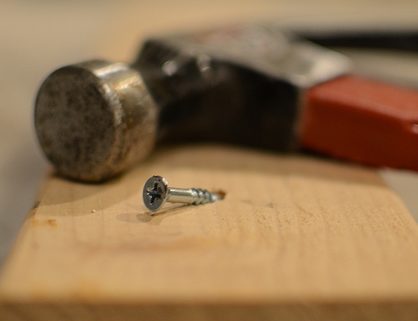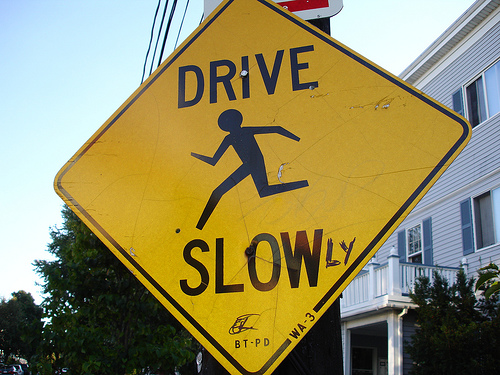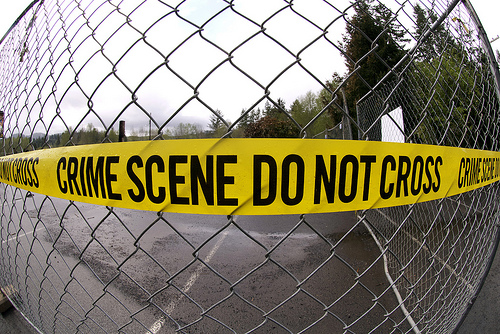“Zero-Based Thinking” for Writers
Today’s guest post is by writer Matthew Eaton, who has a cool topic to discuss—something I’d never heard of before. So check this out:
What would you do if you had more time?
Would you use the extra time to improve your skills?
Would you spend it writing the next great novel?
Time is one of the only finite things in this world, and it is too precious to waste it on “time sinks” (those pet novels you can’t seem to give up on even after ten-plus years of slamming your head against the desk in frustration because you can’t complete it). You must evaluate your time usage with a new mind-set—one that will set you free and help you adjust to cutting your losses.
It is time to “Zero-Base Think” your way out of this situation.
Zero Base Thinking for Writing
“Zero-Base Thinking” is an effective decision-making process whereby you return to a specific point in your life and use the knowledge you have now to evaluate if the thing you are doing is still worth your time. You can correct habits and notice negative patterns in your life on any topic you want (investing, career, business decisions, whether or not to have the whole cheese wheel again).
You can apply this to your writing as well.
Zero Base Me!
Start with a story you might have held on to for too long. There is no set time frame you should keep in mind because you’ll know almost instantly which one I am referring to.
You know: it’s the one about the kittens and unicorns putting aside their differences and uniting against the dog men of Calcula 9 to save the fur universe?
Yeah, that one.
No matter how long you’ve worked on it, you know you have learned a lot since you started the project. Perhaps you’ve read more books on a related topic. Perhaps you’ve read more cat fiction books, and maybe you even had someone critique your work and gave you a better idea on what to do with it (whether the comments were kind or not is a different story).
This is your perfect time to look back and ask this question: Why am I writing about cats and unicorns?
No, wait. Sorry, wrong notes.
Here’s the correct question: Knowing what I know right now, would I have gotten involved with this project?
Start at Zero, Be the Hero
You’ll only have two answers, but you’ll have many options once you determine your answer.
- If “yes”: Congratulations, the kittens and unicorns can continue to fight the dog people! Perhaps you might just need to alter a few things and then off you go, delivering justice to the evil space kennel.
- If “no”: It is time to put down the pen, kiss the kitties on the forehead, and see what you can do to set them free from their universal quest.
If you have chosen “no,” not all is lost. You don’t have to throw everything into a ritual fire and dance around it as though you were releasing evil dog demons. Instead, it might be time to look through the project and see if you can do any of the following:
- Save some of the characters: Yes, Purr-tana is a great character, but she might not be great as a cat. It might be best for her to move to a different story and change her gender or species. A chimp, perhaps?
- Save the setting: The universe you made is fantastic, and could support all sorts of political thrillers and space opera love stories. It doesn’t have to be about an evil dog corporation bent on mining the last of the precious prehistoric bones for their soup.
- Save small fragments like dialogue and description: While bare bones, you can reuse some of the material, including great dialog, great scenes, and marvelous description. Just . . . not the part about Purr-tana’s glowing orange fur . . . That might be a bit much.
Zero-Base Freedom
You may think doing all this is a time sink in and of itself, and for some of you that’s probably correct. You’ll spend a lot of time digging while asking yourself the question every writer hates to ask: “Is this really good enough?”
However, the important point here is you are setting yourself free from the constant energy drain sucking away at the most valuable resource: your time.
There was something holding you back (a certain type of knowledge, a particular way of expressing yourself, a new dog overlord character who is really a cat unicorn in disguise), or you ignored other ideas that were more fruitful and possibly best sellers in their own right.
Unload the Burden
As writers, creativity and expression must flow through a guilt-free mind. You already have enough burdens and fears as it is; you don’t need to have another lead weight on your belt, dragging you down and making this process even harder to accomplish.
And in the end, it will free you from putting more time into an ill-fated project. If worse comes to worst, you can always put it away and come back to it long after your kitties have conquered the universe and express it with a clearer mind and a more robust portfolio under your belt.
So, are you happy with the story you have right now?
What would you do if you had more time?
 Matthew Eaton is a copy technician by day and a writer by not day (dusk, dawn, night, whenever he isn’t hungover) over at Matthew Eaton: Writer, a site created to quell writer’s fears before they become paralyzed by the blank page. You can follow Matthew on his Twitter: @MattEEaton.
Matthew Eaton is a copy technician by day and a writer by not day (dusk, dawn, night, whenever he isn’t hungover) over at Matthew Eaton: Writer, a site created to quell writer’s fears before they become paralyzed by the blank page. You can follow Matthew on his Twitter: @MattEEaton.
Featured Photo Credit: ??ur?.K?th?rin? via Compfight cc












Thanks for having me, much appreciated!
This was a fun and thought provoking post! It is hard to give up our “babies,” especially those we’ve been working on so long. I like how he suggests saving parts and taking those parts forward.
Best,
Pam
Thank you Pam for reading and posting!
Yes, sometimes it is the hardest part of writing is knowing when to let go and get more out of the “return on energy,” as it were.
I’ve had to do this a few times, so there is some familiarity there with this topic.
Have a fantastic day!
I quit on a book eleven years in the making, but resurrected a chapter (changing it to verse) and submitted it with an anthology proposal. The anthology publishes next year!
That is fantastic Caroline, I am so glad to hear that!
I hope it does well, and it is good to see some positive feedback from taking that difficult step!
Wow. This concept provided one more strike in my pro and con list for continuing in a project that’s not providing any ROI. Thank you for giving me one more tool for decision making and analysis of past decisions.
Good morning Vie,
I am happy I could help. I know at times it is very hard to “quit” on certain things, but it does the creative mind better to release the energy, right?
I hope you can get some resolution on the project and maybe you’ll find a different way to spin it!
I post I liked,full of common sense. And this is the kind of comment I don’t make much. I don’t do gooey.
Good morning Venkatesh,
I am happy to hear you enjoyed the post. I hope it helps out others as well!
Thanks for commenting!
This is a great post with really useful advice. Not only can it be hard to let go of stories you are desperately clinging to, but it is also very useful and often inspiring to trawl back through your files and see what stories you’ve forgotten about from years ago. As you say, even if the stories in their entirety can’t be used, they can be dissected and donated to other projects.